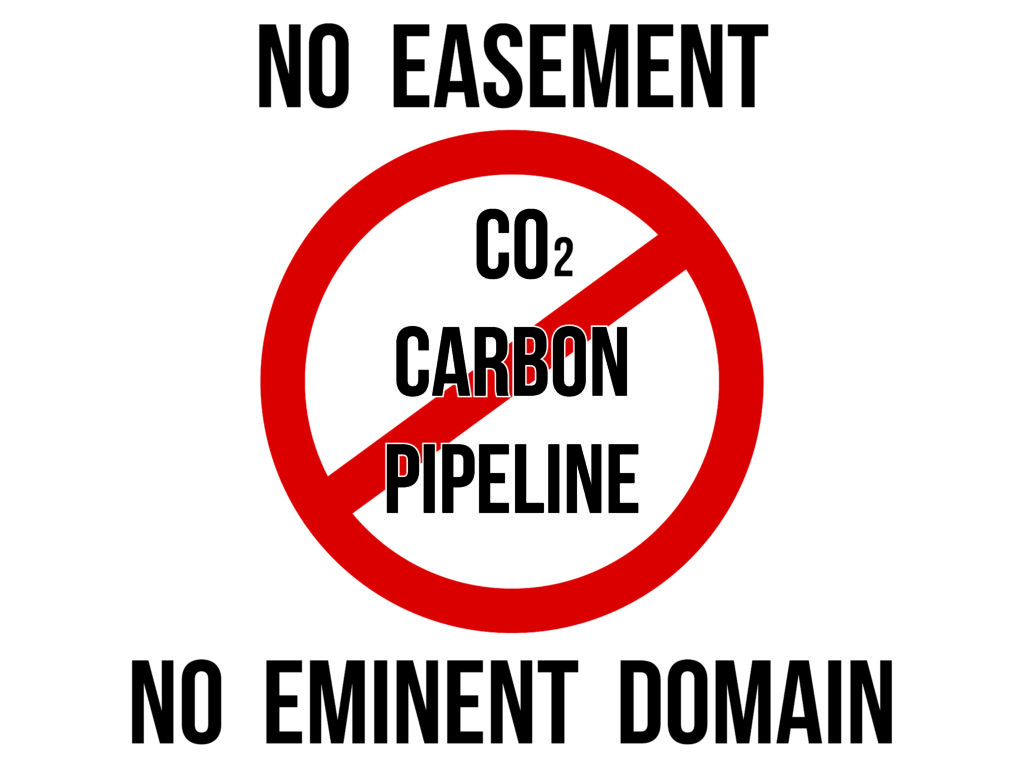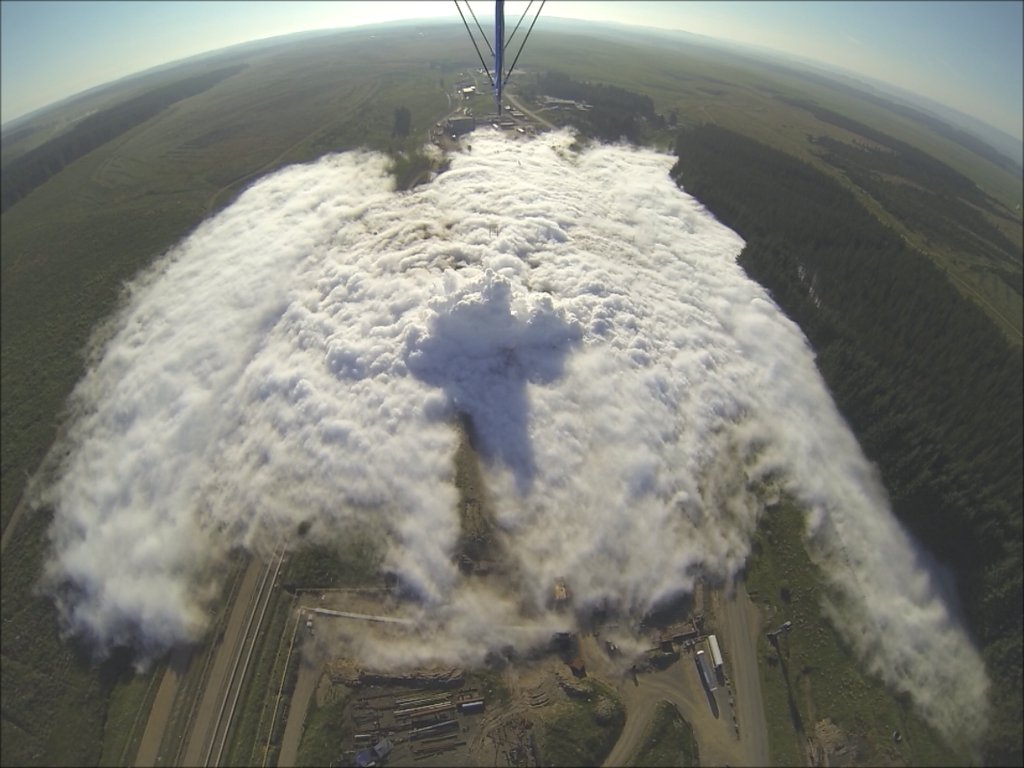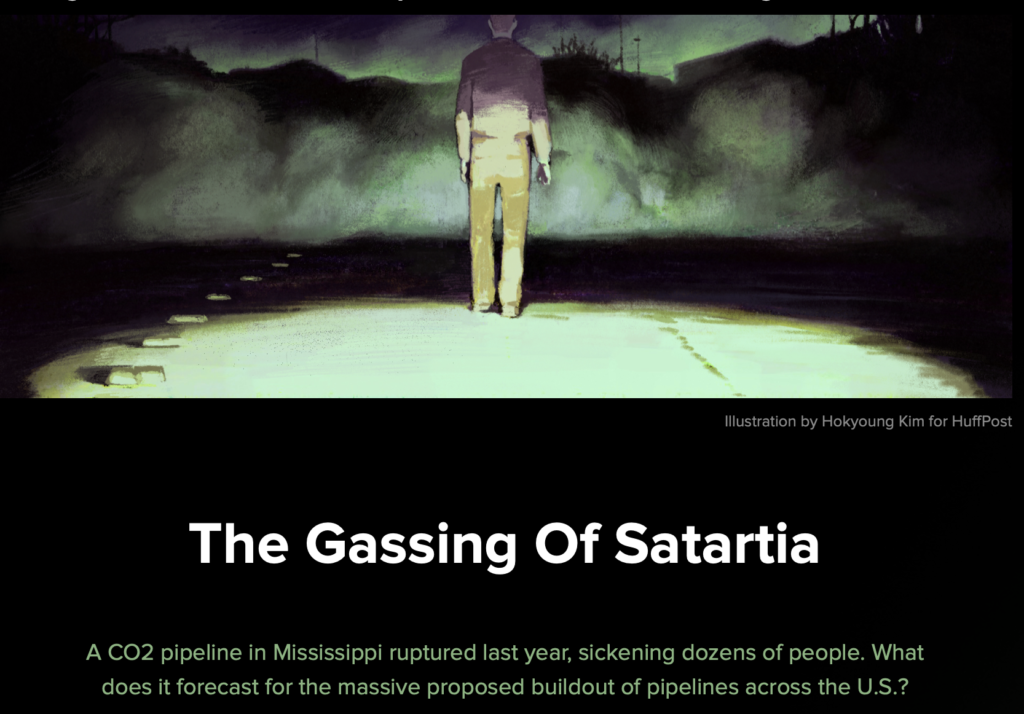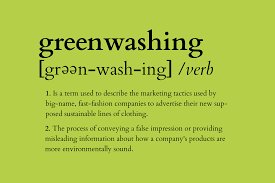Carbon Pipelines
GET THE FACTS ON CO2 PIPELINES
NO EMINENT DOMAIN FOR PRIVATE GAIN!
Unfortunately, South Dakota is one of the easiest states for a private company to access the power of eminent domain.

CCS IS A DANGEROUS AND failed TECHNOLOGY
Carbon Dioxide is classified as a hazardous material by the federal government. It is commonly used as a euthanizing agent for livestock, and there are reported deaths from industrial CO2 leaks every year. These pipelines will have the liquidized CO2 highly pressurized around 2000psi, and any natural or mechanical accident could cause a significant rupture, releasing an enormous cloud of CO2 over the surrounding landscape.
Currently, federal guidelines only mandate a 50 foot setback and a 3 foot minimum depth. We know that these are terribly inadequate, and have great need for county commissioners and zoning boards to pass better safety ordinances.
In addition to multiple CCS projects cancelled for economic failure, there has already been significant failures of these systems resulting in highly dangerous ruptures. For the residents of Satartia, Mississippi, this meant being gassed and poisoned in their own homes and community
Together, CO2 and water form carbonic acid, which can leach toxic metals out of rocks. CO2 seeping into water supplies from deep underground has been shown to make water dangerous to drink. With these pipelines slated to cross so many waterways, there is concern for water contamination of people and animals.


A FALSE CLIMATE SOLUTION
Carbon Capture and Storage (CCS) technology pretends to support climate change mitigation by reducing carbon emissions, but its true intent is to further entrench existing energy systems by creating a cheap, subsidized source of CO2 for Enhanced Oil Recovery. Every dollar of public money spent subsidizing CCS is a dollar that could have been spent supporting REAL solutions.


What is eminent domain?
The Fifth Amendment to the U.S. constitution states: “nor shall private property be taken for public use, without just compensation.” Eminent domain refers to the authority to force private landowners through land acquisition processes for projects. The eminent domain process refers to the process between a company or governmental entity and a private landowner by which the easement or land sale is forced and the ‘just compensation’ is determined in a circuit court. This process of determining fair value in a local court for an easement or sale forced by eminent domain is called condemnation.
In South Dakota there is no clear process laid out by which an entity is granted the power of eminent domain. Historically, once a project is approved or permitted by the Public Utilities Commission, it assumes the power of eminent domain. The PUC deflects any involvement with the eminent domain process in their Pipeline Siting Guide as follows:
“The PUC is not involved in the easement acquisition process that occurs between applicants and landowners. Likewise, the PUC does not have a role in the eminent domain process, which is handled in the circuit court system. Landowners with concerns about these issues should seek advice from their personal attorney.”
Is your land being crossed by a co2 pipeline?
First, DO NOT SIGN A VOLUNTARY EASEMENT. Encourage all of your friends and neighbors not to sign either! Once a voluntary easement is signed, landowners are unable to cancel the easement agreement, and a company is even able to sell that easement to the next pipeline company if they are unable to build themselves. Landowners who fought the Keystone XL pipeline without signing easements voluntarily were able to have condemned easements cancelled, while those who did sign voluntarily did not get their land back.
Second, know that you are not alone and that you have options! Like all manipulative ventures, this pipeline is strongest when those people it affects remain isolated. There are thousands of other landowners just like you who are unsure if they can trust Summit, yet fear they cannot stand up to such a large corporation.
Third, if you want to join other landowners and concerned citizens in a united and coordinated opposition to this pipeline, join us by filling out the contact form below so that we can add you to our mailing list with updates on this issue and ways to coordinate our response. One of the most practical ways that we can effectively and successfully organize against this pipeline is to create a network of landowners who unite as a legal block of opposition to join strength, invest in expert representation, and share the costs of standing up for oneself against a large corporation.
For more information look at the resources listed on the side of this page, or reach out to chase@dakotarural.org to find more ways to be involved.
